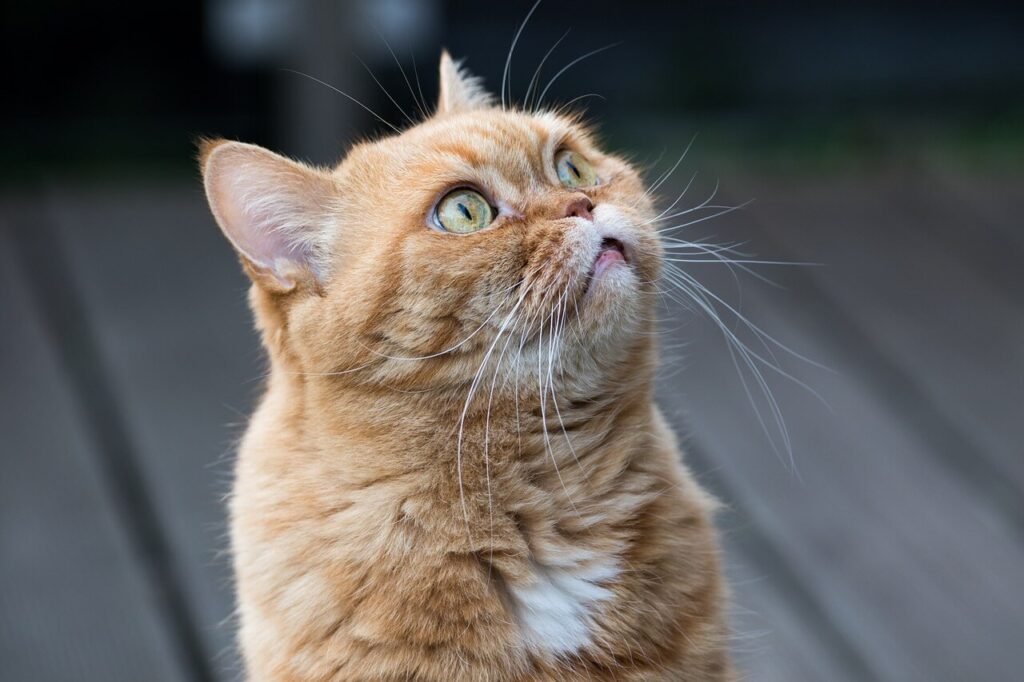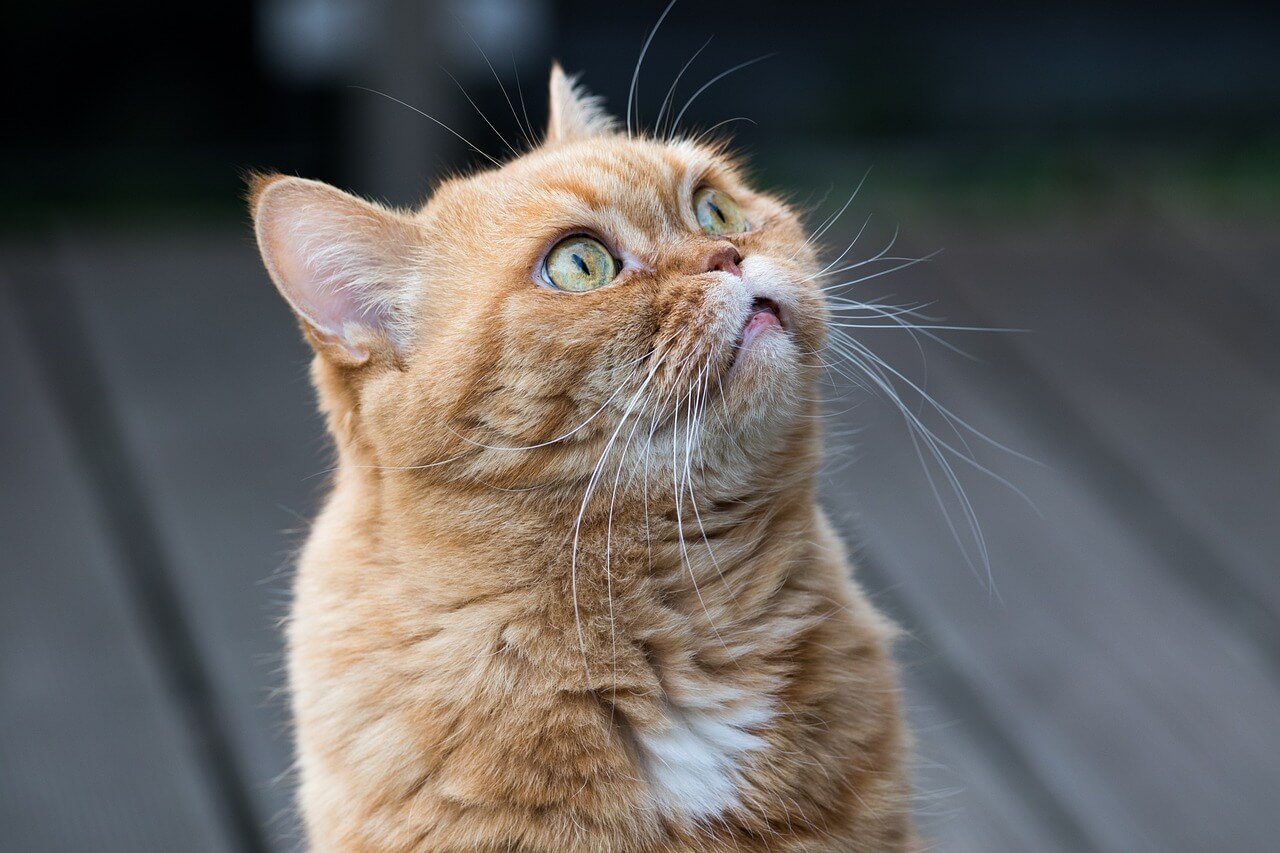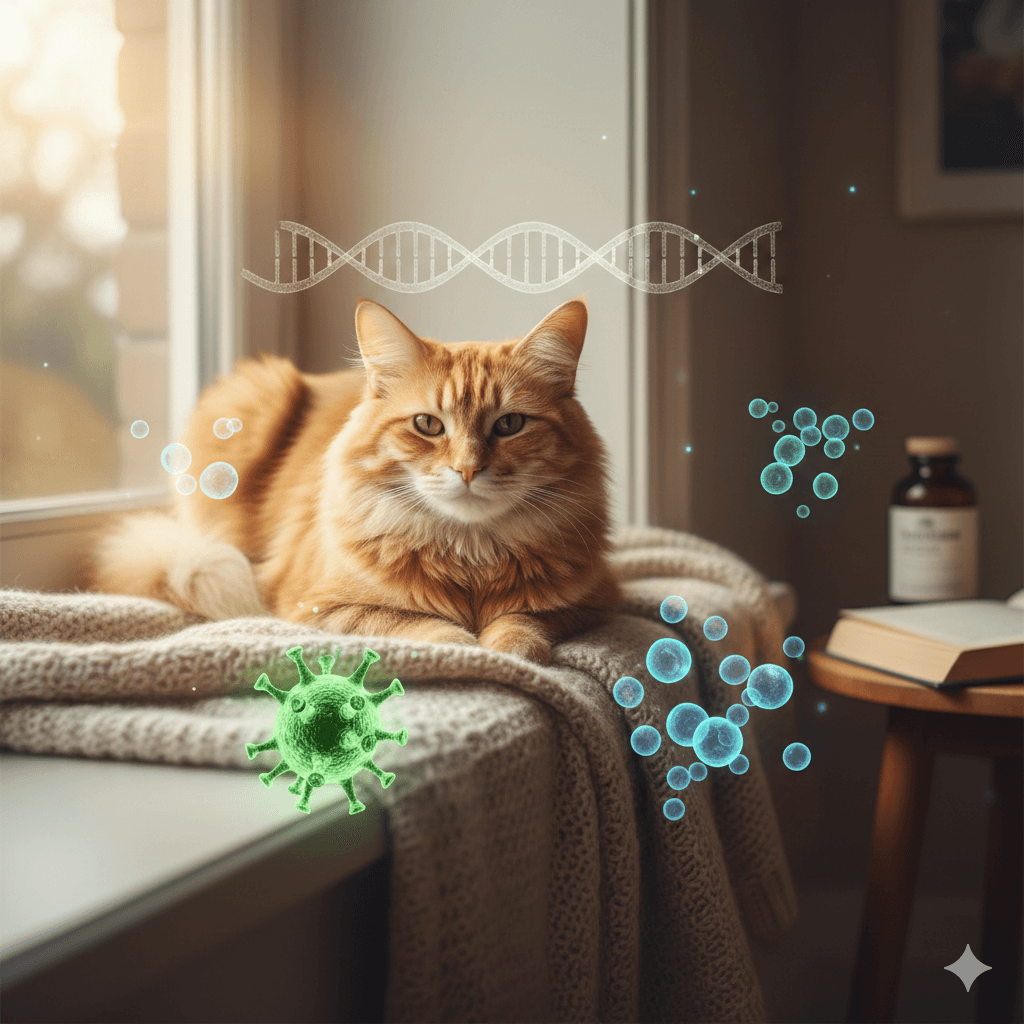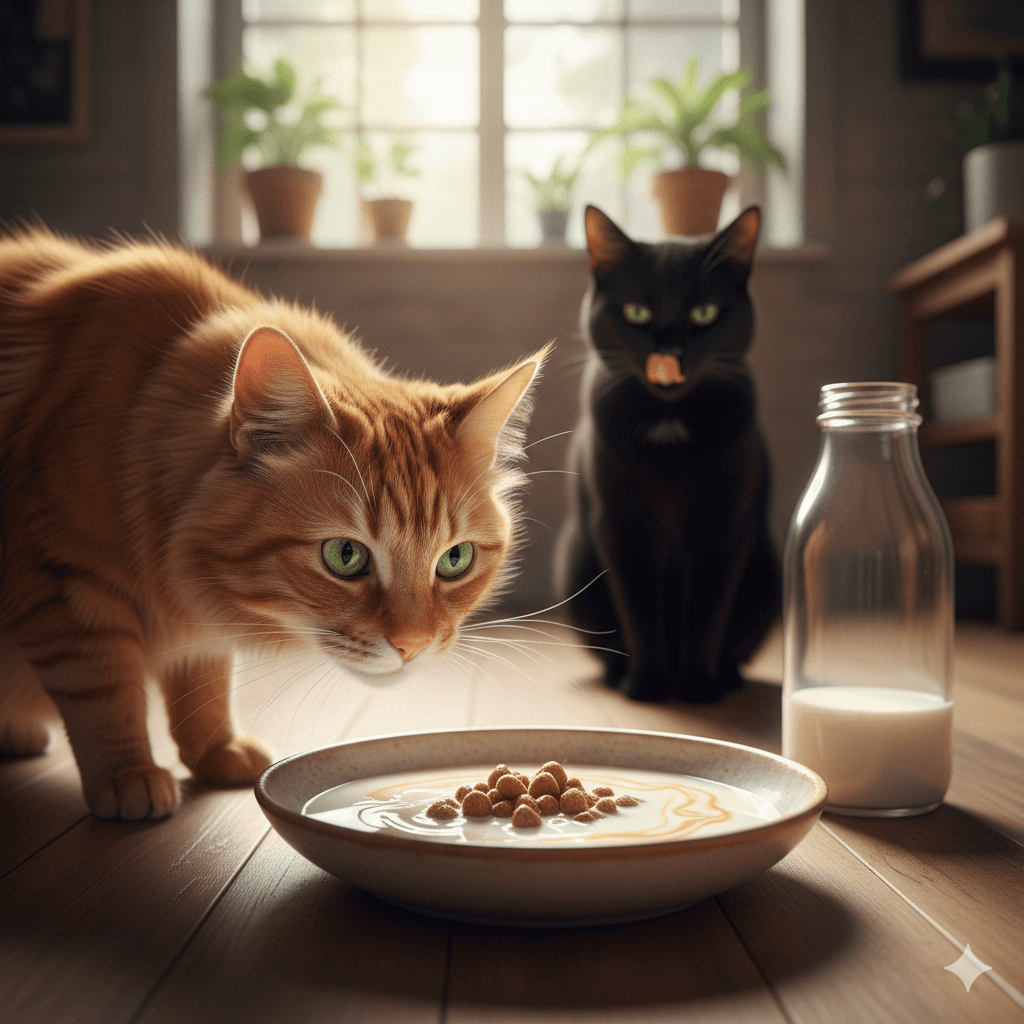Cat Has Flabby Belly: Understanding and Addressing This Common Concern
If you’ve ever noticed your cat’s belly swaying as they walk, you might wonder if it’s a sign of weight gain or something more serious. A flabby belly in cats is often referred to as a “primordial pouch,” and while it can sometimes indicate excess weight, it’s not always a cause for concern. This unique feature serves several purposes, from aiding flexibility to providing protection during fights or play. However, there are instances when a flabby belly may signal underlying health issues like obesity or other conditions.
In this guide, we’ll explore what causes a flabby belly in cats, how to differentiate between normal and problematic cases, and steps you can take to ensure your feline friend stays healthy and happy.
What Causes a Flabby Belly in Cats?
A flabby belly in cats can stem from various factors, ranging from natural anatomy to lifestyle habits. Understanding the potential causes will help you determine whether your cat’s belly is normal or requires attention.
Primordial Pouch : This loose flap of skin on a cat’s underside is a natural feature that provides extra flexibility and protection.
Weight Gain : Overeating or a sedentary lifestyle can lead to excess fat accumulating around the abdomen.
Age-Related Changes : Older cats may develop sagging skin due to reduced muscle tone and elasticity.
Underlying Health Conditions : Issues like hormonal imbalances or metabolic disorders can contribute to changes in body shape.
Breeding and Genetics : Some breeds naturally have more pronounced primordial pouches than others.
By identifying the cause of your cat’s flabby belly, you can take appropriate action to address any concerns or simply appreciate their unique anatomy.
Signs That Your Cat’s Flabby Belly May Be a Problem
While a flabby belly isn’t always harmful, certain signs can indicate that it’s linked to an underlying issue. Here’s what to watch for:
Excessive Sagging : If the belly hangs significantly lower than usual or feels unusually soft, it could indicate weight gain.
Lethargy or Reduced Activity : A lack of energy or reluctance to move may suggest obesity or another health problem.
Difficulty Grooming : Cats struggling to groom themselves may be carrying extra weight or experiencing discomfort.
Shortness of Breath : Labored breathing or panting after minimal activity can signal obesity-related strain.
Changes in Appetite or Behavior : Increased hunger or unusual behaviors may point to metabolic or hormonal issues.
If you notice any of these signs, it’s important to consult your veterinarian to rule out health concerns.
Check this guide 👉The Curious Case of the Cat Belly Button: Best 7 Expert Tips
Check this guide 👉My Cat Loves Belly Rubs: Best 7 Expert Tips!

Normal Features of a Flabby Belly | Potential Health Concerns |
|---|---|
Primordial pouch for flexibility | Obesity due to overeating |
Natural skin folds in some breeds | Hormonal imbalances |
Slight sagging with age | Metabolic disorders |
Protective layer during play or fights | Decreased mobility |
Genetic predisposition | Difficulty grooming |
How to Help Your Cat Maintain a Healthy Weight
If your cat’s flabby belly is due to excess weight, taking steps to promote a healthier lifestyle can make a significant difference. Here are some strategies to consider:
Portion Control : Measure your cat’s food portions carefully to avoid overfeeding, even if they beg for more.
High-Quality Diet : Feed a balanced diet rich in protein and low in fillers to support muscle maintenance and overall health.
Regular Exercise : Encourage playtime with toys like feather wands or laser pointers to keep your cat active.
Scheduled Feeding Times : Avoid free-feeding by establishing set meal times to regulate calorie intake.
Monitor Treats : Limit treats to no more than 10% of your cat’s daily caloric needs to prevent unnecessary weight gain.
With consistency and patience, these changes can help your cat shed excess weight and improve their quality of life.
When to Consult a Veterinarian About Your Cat’s Belly
While many cases of flabby bellies are harmless, there are situations where professional advice is necessary. Here are scenarios that warrant a vet visit:
Sudden Changes in Appearance : If your cat’s belly becomes noticeably larger or firmer within a short period, it could indicate fluid buildup or tumors.
Unexplained Weight Gain : Rapid or unexplained weight gain may signal an underlying medical condition.
Pain or Discomfort : Signs of pain, such as vocalizing or avoiding touch, should never be ignored.
Persistent Lethargy : Ongoing lethargy or withdrawal from normal activities may indicate systemic issues.
Behavioral Changes : Increased aggression, hiding, or other behavioral shifts can accompany physical discomfort.
Prompt veterinary intervention ensures your cat receives the care they need to stay healthy and comfortable.
Why Your Cat’s Flabby Belly Might Actually Be an Advantage
The primordial pouch, often mistaken for excess weight, serves several important purposes in a cat’s anatomy. Understanding these benefits can help you appreciate this natural feature even more.
Enhanced Flexibility : The loose skin allows cats to stretch further during running, jumping, or pouncing without restriction.
Protection During Fights : The pouch acts as a buffer, protecting vital organs from injury during altercations with other animals.
Food Storage : In the wild, the pouch provides extra space for storing food after large meals, helping cats survive longer between hunts.
Aesthetic Variation : It adds unique charm to your cat’s appearance, making them stand out as individuals.
Evolutionary Advantage : This trait has been passed down through generations, proving its usefulness in feline survival.
By recognizing these benefits, you can embrace your cat’s primordial pouch as a fascinating and functional part of their biology.
Clearing Up Myths to Better Understand Your Cat’s Body
There are several misconceptions about flabby bellies in cats that can lead to unnecessary worry or confusion. Here’s what you need to know to separate fact from fiction:
Myth: A Flabby Belly Always Means Obesity : While weight gain can contribute, many cats have a natural primordial pouch regardless of their size.
Myth: The Pouch Indicates Laziness : Even active, healthy cats can have a pronounced pouch—it’s not a reflection of their energy levels.
Myth: You Can “Exercise Away” the Pouch : Unlike fat, the primordial pouch is made of skin and cannot be eliminated through exercise.
Myth: It’s Exclusive to Certain Breeds : While some breeds have more noticeable pouches, most cats possess this feature to some degree.
Myth: The Pouch Is a Sign of Poor Health : In most cases, it’s a normal anatomical trait and not indicative of illness.
Understanding these misconceptions helps you focus on your cat’s overall health rather than worrying about their belly alone.
Staying Proactive About Your Cat’s Well-Being Beyond Their Belly
While a flabby belly might not always indicate a problem, regular monitoring of your cat’s health ensures early detection of any issues. Here are some tips to keep your feline friend in top shape:
Perform Regular Check-Ups : Run your hands along your cat’s body monthly to assess muscle tone, fat distribution, and any unusual lumps.
Observe Eating Habits : Pay attention to changes in appetite, such as eating too much or refusing food, which could signal underlying problems.
Track Weight Changes : Use a scale to monitor your cat’s weight and consult your vet if there are significant fluctuations.
Watch for Mobility Issues : Notice if your cat struggles to jump, climb, or move comfortably, as these could indicate joint or weight-related concerns.
Schedule Annual Vet Visits : Routine examinations help catch potential health issues before they become serious.
By staying attentive to these aspects of your cat’s health, you can ensure they remain happy and thriving for years to come.
Frequently Asked Questions About Flabby Bellies in Cats
Is a flabby belly normal for cats?
Yes, many cats have a primordial pouch, which is a natural feature, but excessive sagging may indicate weight gain or health issues.
Can I remove my cat’s primordial pouch?
No, the primordial pouch is a natural part of a cat’s anatomy and cannot (or should not) be removed surgically unless medically necessary.
How can I tell if my cat is overweight?
Check for a visible waistline, feel their ribs without pressing too hard, and observe their energy levels and mobility.
Does spaying or neutering cause weight gain?
Spaying or neutering can slow metabolism, making weight management more important, but it doesn’t directly cause obesity.
Should I worry if my kitten has a flabby belly?
Kittens often have loose skin as they grow; it usually tightens with age, but monitor for other symptoms of concern.
Embrace Your Cat’s Unique Features While Prioritizing Their Health
A flabby belly in cats is often a natural and harmless trait, but it’s important to stay vigilant about your cat’s overall health. By understanding the difference between a primordial pouch and potential weight-related issues, you can ensure your feline companion remains active, comfortable, and thriving. Whether it’s through portion control, regular play, or consulting your vet, taking proactive steps will strengthen your bond and provide peace of mind. Celebrate your cat’s unique qualities while keeping their well-being at the forefront—because a happy cat makes for a happy home.
How Cats Develop Lymphoma: Best 7 Expert Tips! – Learn about causes, symptoms, and prevention to protect your cat from this common cancer.
How Dogs Develop Lymphoma: Best 7 Expert Tips! – Learn causes, symptoms, and prevention strategies to protect your dog from this common cancer.
Diphenhydramine Safe for Dogs? Best 7 Expert Tips! – Learn proper dosing, uses, and precautions to keep your dog safe while using Benadryl.
Is Milk in Cat Food Safe? Best 7 Expert Tips! – Discover the truth about milk in cat food, its risks, and how to keep your feline healthy and happy.





